Chubby Checker - Interview Part 1
by Lisa Torem
published: 4 / 12 / 2010
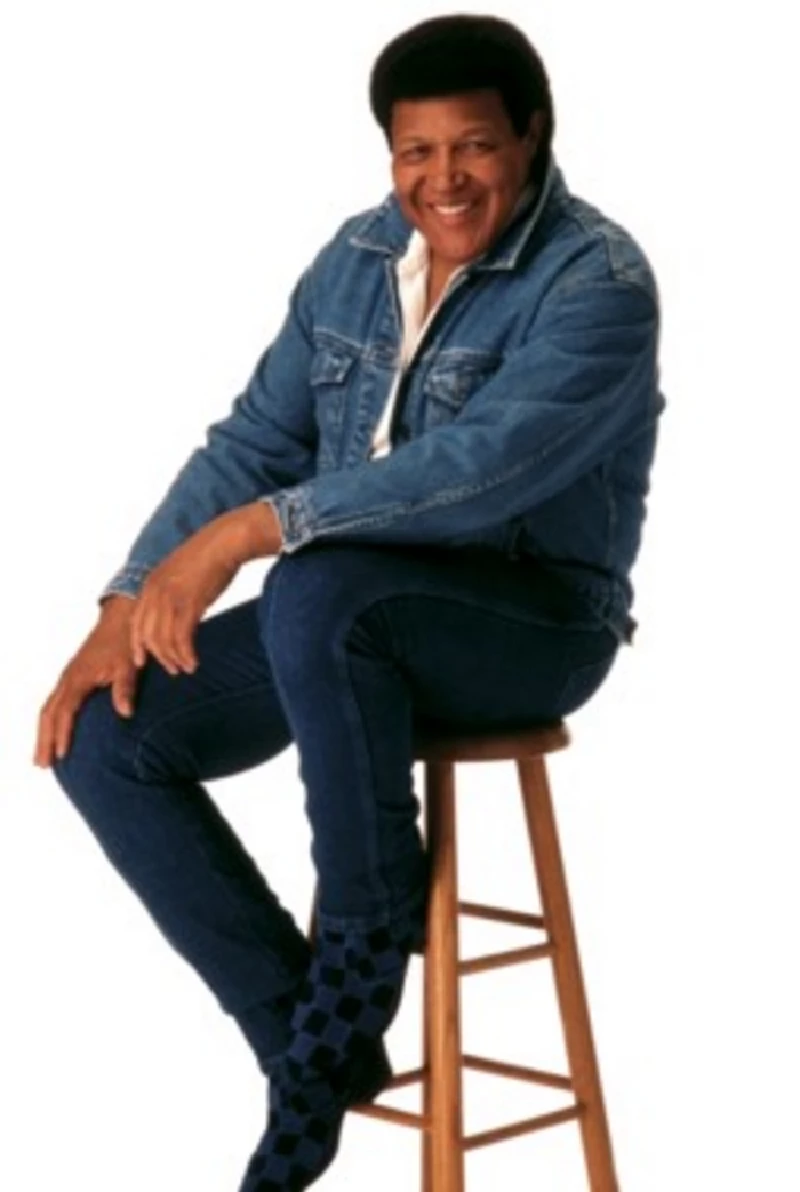
intro
In a two part interview Lisa Torem speaks to bestselling artist Chubby Checker about his worldwide 60's dance hit, 'The Twist' and the racism which he feels has blighted his fifty year career
Raised in the projects of South Philadelphia, but born in Spring Gulley, South Carolina, young Ernest Evans, who lived with his two brothers and parents, was loaded with personality. While working at Fresh Farm Poultry, he entertained customers with imitations of pop singers. Soon, the store owner, Henry Colt and his colleague Karl Mann, who was a songwriter for Cameo-Parkway Records, realized the young man’s talent and arranged to have him record for American producer Dick Clark. When Chubby Checker, as Ernest became, sang ‘The Twist’ on Clark’s popular show, ‘The American Bandstand’, this new craze overtook the network. Even though the song, a basic, twelve-bar blues, had been written and previously recorded by Hank Ballard and the Midnighters in 1959, this fresh, cover version, featuring Checker’s deep, silky voice and pronounced dance moves, made Chubby Checker an instant star. It became the only single to top the Billboard Hot 100 twice. Checker, however, has been quoted as saying, “The Twist really ruined my life.” Checker also performed ‘Limbo Rock’ which charted # 2 in 1962 and became his last top ten hit. ‘Let’s Twist Again’ won the 1961 Grammy Award for Best Rock and Roll Solo Vocal Performance. Chubby Checker has never stopped performing live throughout America and Europe, despite his feelings of being overlooked by the music industry. He still plays the hits that his audience craves, but has gone on to explore other genres such as rap and rock, as well. In an in-depth look at a talented artist whose performance and voice riveted a nation, the acclaimed performer Checker explains his feelings about his life’s work in the music industry, both the bitter and the sweet, to Pennyblackmusic. PB: Chubby, you pioneered the concept of “dancing apart to the beat” and getting adults to join teens on the dance floor. Do you think that type of phenomenon will ever repeat itself; a dance that brings people together in that way? CC: What we call “dancing apart to the beat” is what we’re celebrating; 50 years of that. The twist is just one of those things that represent “T-H-A-T” that. We’re celebrating 50 years of dancing apart to the beat. That means I’m watching her and she’s watching me and we’re exploiting our sexuality while being fully dressed. This is what we’re celebrating while being fully dressed. This is what we’re celebrating 50 years of, and before we came along, this wasn’t here. We’ve popularized that style of dance. It is the biggest event in the music industry, the day that it happened and it’s still the biggest event in the music industry as we speak and these dances are done to everybody’s music, everybody; anybody who has a beat. People dance apart from the beat to the music. If you’re not dancing apart from the beat, you’re slow dancing, holding each other or you’re line dancing or you’re probably doing the rumba or something. But these people love the fact that they get with a strange woman or a strange man and do a striptease with their clothes on in front of them. That’s basically it. That’s why the dancing apart to the beat has been with us and has not left us. When Chubby did the twist on ‘American Bandstand ‘and the whole nation was watching, we followed with the Pony which is really the biggest dance. I don’t know what they call it – two on one side, two on the other. The rappers do it, and the Fly – throw your hands in the air and the nasty dance, the Hucklebuck – having sex standing straight-up. That’s what it looks like; the best way to describe it. But these are the dancing keyboards to the way we dance apart to the beat and have been doing that for fifty years. And, in 2008, to solidify my big mouth, and what I’m talking about, the twist became the number one song of all time, the biggest one on the planet in 2008; the biggest song on the planet from 1958 to 2008, the twist was the number one song on the planet. The next time that comes around, I won’t be here. It will be 2058. It’s the biggest song of the last 50 years, but before that, there was no song title for 50 years, but I’m the first person to have the only song to be number one twice.. The entire 60s decade, the number one song of that is ‘The Twist.’ The first platinum that was evee given was ‘Let’s Twist Again.’ The first song that was a Rock and Roll Grammy was, ‘Let’s Twist Again’ and we’re the only people to have five albums in the top 12 on the charts at the same time. The only people that came near to that was Elvis and then the Beatles came along and they had five number ones, from number one to number five. But, the number one song that they had was, ‘Twist and Shout.’ PB: So the Beatles were greatly inspired by your song. Would you say they copied your idea? CC: Anyone who sings, ‘The Twist’ is copying me, no matter who it is. PB: You recorded ‘Back in the USSR’ which is a Beatles tune. What prompted you to record that particular one? CC: It sounded like Chubby Checker. PB: The beat? CC: It sounded like Chubby Checker. PB: What exactly sounded like Chubby Checker? CC: ‘Back in the USSR.’ PB: The lyrics didn’t have much to do with you… CC: It sounded like Chubby Checker. That’s all I can say (Laughs). PB: What did you think of the Beatles when they came along? CC: The Beatles were fine. They were great, cool, lots of fun. I mean there’s no animosity between me and the Beatles. Everybody was out there singing songs; Elvis. I don’t care about that. I mean, they make records. They were successful. I think it’s great. People love it. PB: You learned how to play the piano and were inspired by Fats Domino and Jerry Lee Lewis, both piano players, yet you didn’t play piano during your early performances. CC: I got too much music in my head to be sitting down playing instruments. I’m too diversified. I’m a poet. I’m an inventor. I’m a dancer. I write songs. I ain’t got no time to play no stupid piano. Let somebody else do it. PB: What are you inventing? CC: If you look at the internet I have several inventions that are going to come to the surface I’m working on one; some food products. I have a chocolate candy bar. It’s a checkerboard candy bar, only one of its kind in the world and I think we’ll have it on TV early next year for everyone to see. I mean, if you look at the patent office, I mean, there’s more than 40 or 50,000 patents on the Twist. If you go into Chicago supermarkets, there’s got to be about 35 products on the shelf called “twist.” They’re cleaning up and they’re not paying me. They’re cleaning up and they’re not paying me and not only that, my inventions, my new inventions, they’re starting to steal those, too, and I’m having a problem with it. So, believe me, Chubby Checker’s feeding a lot of people in the world; a lot of people and, a hundred thousand or fifty thousand patents and trademarks; I’m feeding a lot of people in the world. Every year the patents have to be renewed in the trade office. I’m feeding a lot of people. PB: You recorded ‘Limbo Rock’ which may have spearheaded the world music genre. The limbo started in Trinidad and many Americans used to hear that song at kid’s parties, adult parties and at clubs. Do you think of that tune as a “world music eye-opener?” CC: My song, ‘The Limbo?’ PB: Yeah. It became a huge party hit. People would bring out a bamboo rod or broomstick and everyone would lower themselves under the stick while the music played. CC: We did ‘The Limbo’ after an instrumental that was done by the Champs. The Champs did an instrumental called ‘Limbo Rock’and we put the lyrics to it. PB: You wrote the lyrics? CC: We put some lyrics to it and we never knew that stupid song would be a hit. I mean, it was a hit; really a big hit, maybe number two or three on the charts, or something. In fact, ‘Limbo Rock’ was my last, I’m not sure, I think ‘Lotty Lou’ was my last top ten hit or something or ‘Limbo Rock’ or something like that. But, people don’t know about Chubby Checker. They really don’t. They think so. In fact, all those awards…I’m the only person that has done certain things in the world. First of all, my tune is the number one song in the world, but you don’t hear it. They don’t play my music and the only difference between me and the great ones – they don’t play my music. And, in England, too, they’re not playing my music. But, they’re playing everybody else’s music and they don’t have the awards I have hanging off my wall. But, they don’t play my music. I’m in a business where everybody pulls the strings, but they don’t pull the strings in my direction. If they don’t come to my part of the world, the grass is just going to grow, you know. PB: In your early career you sang with Bobby Rydell and Dee Dee Sharp. Did you enjoy doing duets with other entertainers? CC: I enjoy doing music. I don’t care who it’s with. That’s what I do. I love the music and if I’m doing it with someone -I don’t have this problem with other singers and I don’t dislike other singers. I don’t have anything against other singers that do what I do, because we’re artists and we’re all trying to please the people to make them happy. The only thing that really tears me apart is when my music is not being played. That really upsets me a lot. That gets down in my blood and it starts to fester at my soul because the worst thing that could happen in your life is to be overlooked, and a lot of people, like I said, there are millions of people, millions of people, that are making money through Chubby Checker, and no one even knows that I’m there and it’s hurtful to me. I wake up at night sometimes thinking, ‘My God, you know, no one plays my music, you know? Why don’t they play my music?’ I just had the number one song on the planet. I’m sure they’ll play it now. I’m not hearing it. It’s a big, empty room and it’s dark and I’m sitting on a stool and I’m afraid to get off the stool to walk across the floor because I might fall and hurt myself. That’s just how it feels. PB: Those early days in Philadelphia. were you one of those young guys standing on the street corners, singing harmonies with your friends, like Frankie Avalon and Bobby Rydell? CC: Well, I was singing with my group, the Quantrells. I was in a doo wop group. We sang on street corners and we did all that stuff and ( Laughs) we fought like cats and dogs and then one day I’m at the studio and they were kind of interested in me and I didn’t say anything and before I knew it Chubby Checker was on the scene and the Quantrells had disappeared, you know? It was too much tension in the group; too much. It was hard for me to deal with it because I was teaching them how to harmonize and how to do things on stage and they just went in another direction. It took hours to get one little thing done because everyone was arguing all the time and I knew that that wasn’t going to work, so you know, we had a few years together and I just left them, and everybody in the group has passed away, except me. They’re all gone. The Philadelphia scene – it was wonderful. We did good things. I just think that there is a shadow in the music industry and it’s very difficult. It’s a shadow in the music industry of who gets airplay and who doesn’t get airplay; who is allowed to succeed and who is not allowed to succeed. PB: Politics – CC: And, it’s - it’s terrible. It’s awful. I’m not the only person who suffers through it. Many performers suffer through this; many of them, many, many, many, yes. PB: Yet, so many people pay tribute to rock and roll in documentaries and live performance still. It’s a paradox. There’s no common denominator for the kids, today, no sense of community or shared dance or song. CC: Because they’re programmed to hear what they want them to hear, not what’s out there. It’s bits and pieces of the real thing and the government and the music industry decides who gets seen and who does not get seen. Like the conspiracy against Michael Jackson. It was a shame what they did to him. I mean, there are a lot of crazy people in the music business. What’s more crazy than Lady GaGa? She’s a crazy person. But, nobody cares. So, Michael Jackson’s a nut, so what? There was a conspiracy against this man; they destroyed him. They put him in a situation where he had to spend all of his money and then he died. And now they’re trying to make it up to him but it’s too late, and these things go on in our business. We’re in the music business and there’s nothing righteous about the people in the entertainment industry; the movie stars, the singers, the people who are in the arts. I mean, if you’re looking for morality, where are you going to find it? You know, I mean look at the first page of all the trash magazines and see these TV shows every night, actors and actresses and singers. I mean there’s no good news; all about sex and infidelity; all about people having sex; no one in this industry is clean and pure. So, what are we fighting about? It’s useless. It’s a business of vanity. So we try to do the best we can. You should turn out like Lady GaGa. No, you don’t. No, you don’t. You don’t have to turn out like Lindsey Lohan – you don’t. I know you don’t. (Laughs). PB: Tell me about Fats Domino and his influence. CC: Ah, you want to get off the subject, huh? PB: No, but wouldn’t you consider that a time when music was more genuine, more real? CC: No, I don’t think so. PB: You don’t think so… CC: No, the music wasn’t real back then. It was just as racist as it could be, just as racist as it could be. Fats Domino’s records were sung by Ricky Nelson and Pat Boone. PB: They snatched it… CC: They wouldn’t play his music. There was a man named Alan Freed that played Fats Domino’s music and put it in the movies to make those black kids big stars; but that was before me. He made those kids big stars – Alan Freed did that and then what they did to him – they blamed ‘Payola’ on him and they shorted him. The Rock and Roll Hall of Fame in Cleveland honoured Alan Freed after he was dead. Lots and lots of.music was real back down, back from 1950-1964. Black kids made rock and roll what it is; black kids brought that to the scene, rock and roll. Alan Freed, he said, if you look back, he coined the phrase. In 1938 there was a singer talking about rock and roll back then. And, I’m just saying, from 1950-1964, the black kids engineered rock and roll. The white kids were just part of it. PB: Right. CC: And they found Elvis Presley and that was the best thing they could have found. They wanted him to overshadow all the rockers that came out and he was good. He was good and they found someone who was real good, because he was good. But, guess what they just did in the music industry? PB: What? CC: 1964. anything before the Beatles – listen to this – anything before the Beatles does not get played anymore. So, that wipes out all those people that you say, when music was real, gone by the wayside. They still play the Rolling Stones from the 60s, they still play Frankie Valli, and they still play the Beach Boys. They play Neil Sedaka. But, they don’t play anybody else. So, how is that? You tell me there’s no politics in the music industry. When music was real, was it real back then? They were stealing it from the black kids in those days, now they wiped them out. From 1964, anything before the Beatles does not get played anymore. PB: Chubby, you’ve got a daughter who is a basketball player. Are there linkages between athletes and musicians; such as developing a certain kind of positive attitude? CC: Now, I tell Mistie (Mistie Bass is an American professional women’s basketball player/WNBA-LT) all the time, if you’re an athlete who’s going to stop you from being the most wonderful person in the world? Who’s going to stop you from being the most wonderful athlete in the world if you’re an athlete? Am I making any sense? PB: Yourself. CC: Why do you think there are so many athletes black of colour that are so successful? Why? Because there are no politics, and if there is politics, guys like Charles Barkley, and a few more, tell the coach to drop dead; don’t tell me not to shoot the ball. I’m going to shoot. If I make it, I make it and if I don’t, send me somewhere else. Who’s going to stop you from becoming the most wonderful person in sports? But, in the music industry, everybody that’s in the music industry and the movies – they’ve got people pulling strings. Who is going to be and who is not going to be? Sports we don’t have that. In sports, the best man, the best woman wins, and that’s the way it should be all across the board. In the music business we’re not allowed to be heard. H-E-A-R-D. We’re not heard. If you’re not heard, you’re out of sight, out of mind. How many shows that you have been to in the last three years, you see some big superstar play and you get there and you saw nothing. Come on, tell me about it. PB: You’re saying it’s engineered. CC: There you go. It’s like in the fairy tales; ‘The Emperor’s New Clothes’. You go to see something and you don’t see nothing at all. All this airplay, all this hoopla and you don’t have anything. Now, I’m not saying for all of them, because there are a lot of them out there. I saw Paul McCartney and Brian Wilson and they were wonderful. I saw them in Hollywood and they were fabulous, It was incredible. So these guys play and they live up to their expectations, but most of them do not. They get airplay, they got long hair, they’re fat. They’re despicable in front of the crowd, but the disc jockeys’ play them over and over and over and over and over and when they go places they sell out and nobody cares who pumped their veins. They cleaned out all the crack and the cocaine so they can have another big tour. It’s common knowledge. Somebody throws their girlfriend out the window. Nobody says nothing. Somebody decides to get married to a man or get married to a woman; nobody says something, you know. A black kid does this stuff and all of a sudden, you’re no good anymore. PB: You felt the Rock and Roll Hall of Fame shut you out – CC: No, no. I don’t even want to go there. That’s not important to me. You know the important thing is you’re able to go out and make a living. This is what’s important. Many people in the RRHF have day jobs. Some of these people have day jobs. Some of those people came into the RRHF that have been obsolete for the last 40 years. Hank Ballard was in the RRHF. It didn’t do him any good. His whole life; he didn’t make any money. It’s almost like when someone gives you a lifetime achievement award because there was nothing left to give somebody. That’s a bunch of crap. The most important thing is that they should be making a living in front of a live audience and getting your music played, that and the reward of being in the music industry. PB: Are you currently touring? CC: I play all the time. I play anytime they say, “Hey, Chubby, we want you here. Let’s play.” PB: What is your current line-up? Is it a trio, quartet? CC: No, no, no, no, no. I’m a live entity rock band. Chubby has five musicians. Chubby has a tour coach that he rides around in and Chubby goes from city to city in his tour bus like all the country singers do, or either we take planes to get to where we need to be. I’m a business entity in the music business. We don’t fool around and drive in trucks and little cars and stuff. We are in the music business. I work hard, but I’m a success in the music industry and we’re still successful out here and because we’ve played so many different shows. If I’m in New York at a high school or maybe I’m playing some college or maybe I’m at a state fair, I’m always out there doing this thing. I could be more successful if the radio station said, “Here’s the number one song on the planet, kids.” That would help me a lot but, they don’t go that far. PB: You currently perform a song called, ‘Knock down the Walls.’ CC: Did you hear it? PB: Yeah. It’s cool. CC: Awesome. PB: What else are you currently playing live? CC: I play Chubby Checker for these people. I give them what they want. The centre piece of my show is them. They are the centre piece of everything I do. They are the most important entity in my life next to God. I take care of these people, because without them where would we be? I don’t throw my nose up at them. I don’t want them to think I’m doing them a favour by showing my body in front of them. It’s all about them. It’s not about me and my show consists of those people and what we do together when the music is playing and I’m in front of them and they’re in front of me. It’s amazing. This is the success of my career, that live show, and because no one has control of me in that live show. It’s the music, it’s the people, it’s me and we have a wonderful time and for 50 years, they’re coming to see my shows over and over again. I have watched people. They have told me they’ve just gotten married and ten years later they bring their kids. Then fifteen years later they bring their kids with their kid’s kids and I have pictures. This has been going on over and over with the same people who have kept me in my house, that put my kids through school, that have given me a chance to be out in the music industry. The same people I have seen them year after year. I’ve watched them get old I’ve seen some of these people go from standing up until wheelchairs and they have been coming to see me and they’re bringing their kids , year after year, to see Chubby Checker. I have a small audience but they always come to see me. When I go places, they’re there. I don’t know what it is but they’re there all the time. It’s been over and over and over again. Radio stations and broadcasting are making sure I’m not getting any more fans by not playing my music.
Picture Gallery:-
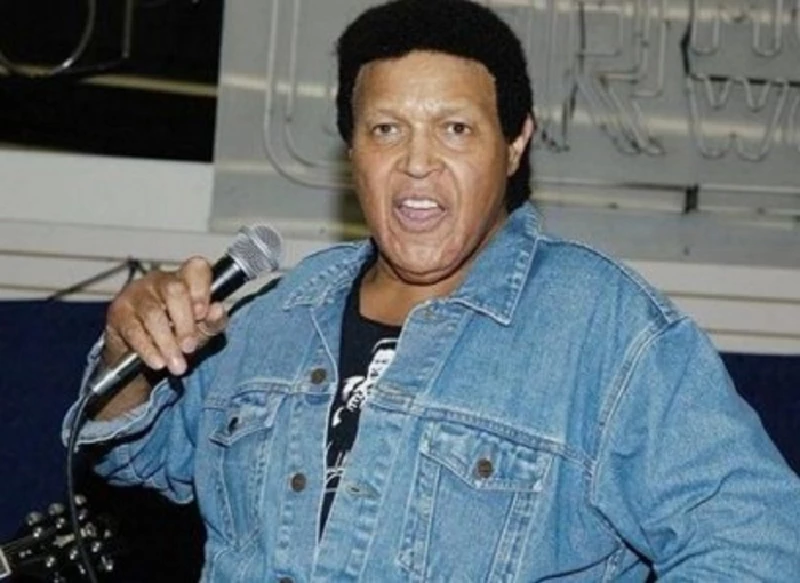
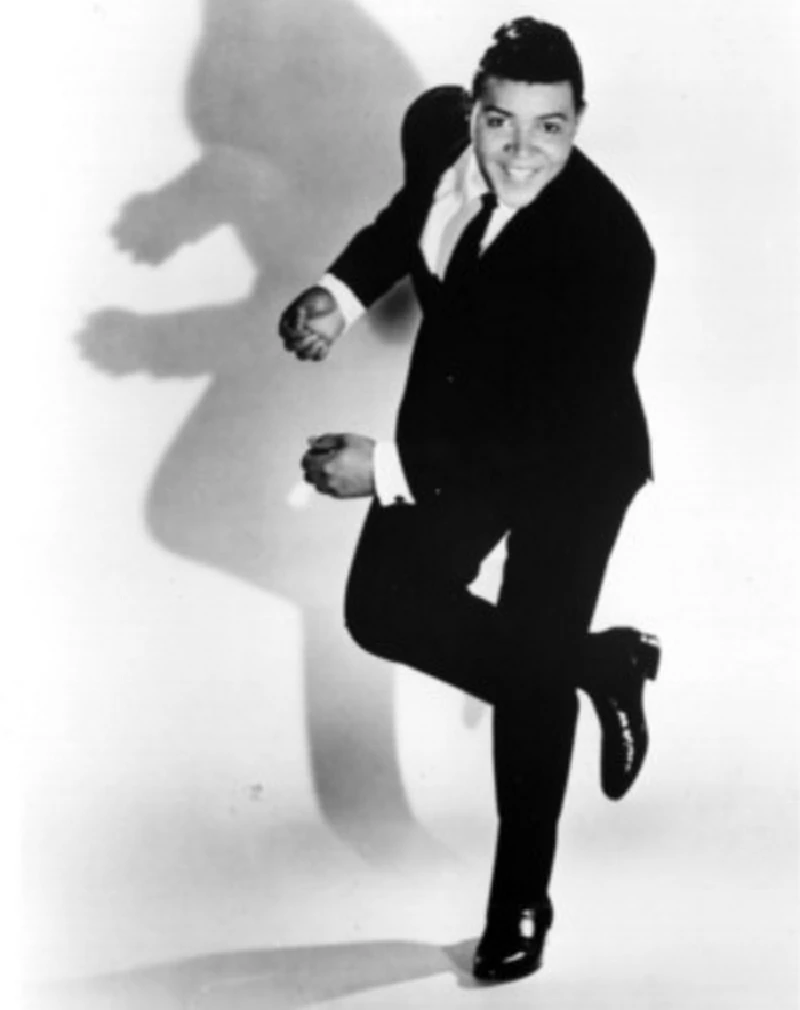
interviews |
|
Interview Part 2 (2010) |
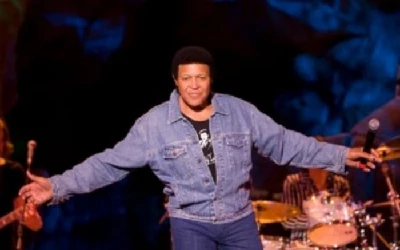
|
| . |
live reviews |
|
Horseshoe Casino, Hammond, Indiana, 23/1/2011 |
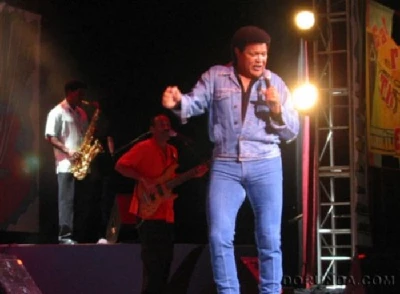
|
| Lisa Torem watches 60's icon Chubbby Checker play an enthusiastic and humorous set of his classic rock 'n roll hits at Horseshoe Casino in Hammond near Chicago |
most viewed articles
current edition
John McKay - InterviewCathode Ray - Interview
Robert Forster - Interview
When Rivers Meet - Waterfront, Norwich, 29/5/2025
Spear Of Destiny - Interview
Fiona Hutchings - Interview
Carl Ewens - David Bowie 1964 to 1982 On Track: Every Album, Every Song
Chris Wade - Interview
Shrag - Huw Stephens Session 08.12.10 and Marc Riley Session 21.03.12
Brian Wilson - Ten Songs That Made Me Love...
previous editions
Heavenly - P.U.N.K. Girl EPBoomtown Rats - Ten Songs That Made Me Love....
Manic Street Preachers - (Gig of a Lifetime) Millennium Stadium, Cardiff, December 1999
Allan Clarke - Interview
Oasis - Oasis, Earl's Court, London, 1995
Barrie Barlow - Interview
Beautiful South - Ten Songs That Made Me Love...
Pixies - Ten Songs That Made Me Love...
Chuck Prophet - Ten Songs That Made Me Love...
Dwina Gibb - Interview
most viewed reviews
current edition
Peter Doolan - I Am a Tree Rooted to the Spot and a Snake Moves Around Me,in a CircleVinny Peculiar - Things Too Long Left Unsaid
Garbage - Let All That We Imagine Be The Light
Vultures - Liz Kershaw Session 16.06.88
John McKay - Sixes and #Sevens
Little Simz - Lotus
HAIM - I Quit
Pulp - More
Lapsley - I'm a Hurricane, I'm a Woman In Love
Billy Nomates - Metalhorse
Pennyblackmusic Regular Contributors
Adrian Janes
Amanda J. Window
Andrew Twambley
Anthony Dhanendran
Benjamin Howarth
Cila Warncke
Daniel Cressey
Darren Aston
Dastardly
Dave Goodwin
Denzil Watson
Dominic B. Simpson
Eoghan Lyng
Fiona Hutchings
Harry Sherriff
Helen Tipping
Jamie Rowland
John Clarkson
Julie Cruickshank
Kimberly Bright
Lisa Torem
Maarten Schiethart